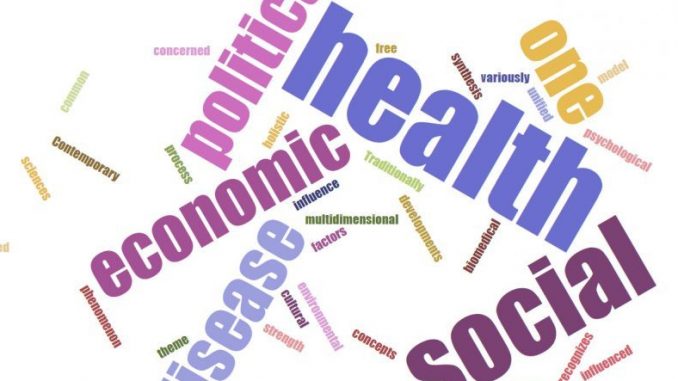
Introduction
Health is a common theme in most cultures. In fact, all communities have their concepts of health as part of their culture. An understanding of health is the basis of all health care. Health is not perceived the same way by all members of a community including various professional groups giving rise to confusion about the concept of health. Health has evolved over the centuries as a concept from an individual concern to a worldwide social goal and encompasses the whole quality of life.
A short description of the changing concepts of health is given below:
- Biomedical concept:
Traditionally, health has been viewed as an “absence of disease”, and if one was free from disease, then the person was considered healthy. This concept, known as the “biomedical concept” has the basis in the “germ theory of disease” which dominated medical thought at the turn of the 20th century. The medical profession viewed the human body as a machine, disease as a consequence of the breakdown of the machine and one of the doctor’s task as repair of the machine. Thus health, in this narrow view, became the ultimate goal of medicine.
The criticism that is leveled against the biomedical concept is that it has minimized the role of the environmental, social, psychological and cultural determinants of health. The biomedical model, for all its spectacular success in treating disease, was found inadequate to solve some of the major health problems of mankind by elaborating the medical technologies. Developments in medical and social sciences let to the conclusion that the biomedical concept of health was inadequate.
- Ecological concept:
Deficiencies in the biomedical concept gave rise to other concepts. The ecologists put forward an attractive hypothesis which viewed health as a dynamic equilibrium between man and his environment and disease maladjustment of the human organism to the environment. Dubos, defined health saying: “Health implies the relative absence of pain and discomfort and a continuous adaptation and adjustment to the environment to ensure optimal function”. Human, ecological and cultural adaptations do determine not only the occurrence of disease but also the availability of food and the population explosion. The ecological concept raises two issues, viz. imperfect man and imperfect environment. History argues strongly that improvement in human adaptation to natural environments can lead to longer life expectancies and a better quality of life even in the absence of modern health delivery services.
- Psychosocial concept
Contemporary developments in social sciences revealed that health is not only a biomedical phenomenon but one which is influenced by social, psychological, cultural, economic and political factors of the people concerned. These factors must be taken into consideration in defining and measuring health. Thus health is both a biological and social phenomenon.
- Holistic concept
The holistic model is a synthesis of all the above concepts. It recognizes the strength of social, economic, political and environmental influence on health. It has been variously described as a unified or multidimensional process involving the well-being of the whole person in the context of his environment. This view corresponds to the view held by the ancients that health implies a sound environment. The holistic approach implies that all sectors of society have an effect on health, in particular, agriculture, animal husbandry, food, industry, education, housing, public works, communications, and other sectors. The emphasis is on the promotion and protection of health.
References:
- K. Park. Concept of Health and Disease. In: Park’s Textbook of PREVENTIVE AND SOCIAL MEDICINE. 23rd ed. India: Banarsidas Bhanot; 2015.
- Ahmed, and Coelho, (1979). Toward a New Definition of Health, Pleum, N.Y.
- Dubos, R. (1965), Man Adapting, New Haven, Yale Uni. Press.
- WHO (1986). Concept of Health Behavior Research, Reg. Health Paper No.13, SEARO, New Delhi.
- WHO (1978). Health for All, Sr.No.1.
